Part III of the story of my near-death experience with severe altitude sickness in Tajikistan. Don’t miss Part I and Part II.
Eagle talons are surprisingly meditative in times of struggle.
Despite still being delightfully unfit for travel, I was again bouncing in a shared jeep taxi in the Middle of Nowhere, Tajikistan. Fixating on the severed claws hanging from the rearview mirror helped distract from the sharp pains shooting through my head at every bump in the road.
Meditative focus aside, the talon talisman seemed grimly appropriate: a reminder of death dangling before my eyes as I traveled toward what was—hopefully—salvation from a near death experience.
A reassuring squeeze of my hand interrupted dark thoughts. My neighbor in the cramped front row, an older Kyrgyz woman with gentle eyes and white headscarf, smiled warmly as she gripped my hand. I smiled in return and held on tight—I needed all the comfort I could get.
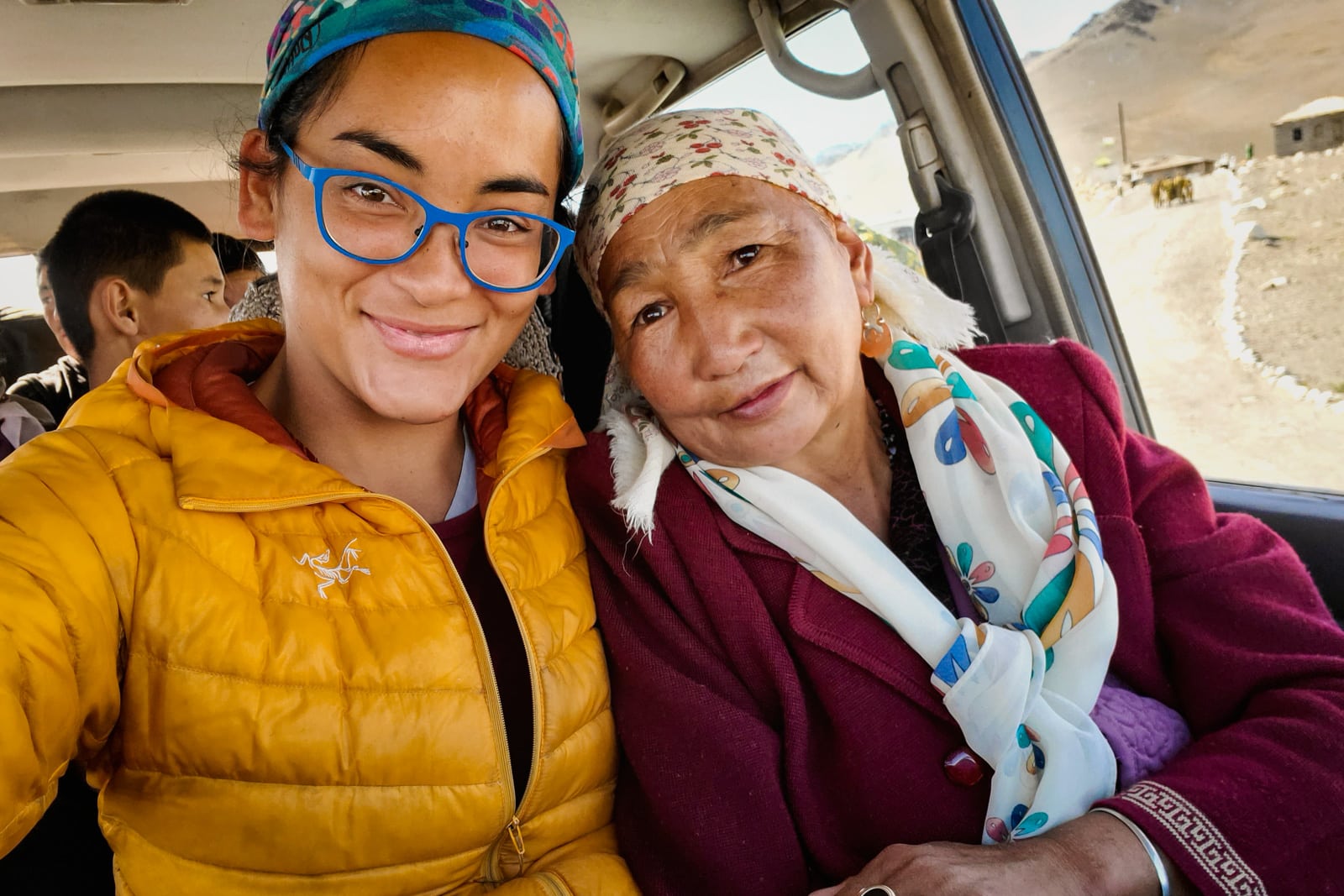
“Take our picture!”
Down… ish
Our jeep hurtled along the stretch of the Pamir Highway connecting Tajikistan and Kyrgyzstan. “Highway” in a Pamiri context means a stretch of once-paved road so battered by wind, sand, and ice that it’s often indistinguishable from the dirt around it. Not that anything but is possible on one of the world’s highest roads.
The Pamir Highway wasn’t high on my list of Places I’d Like To Be Immediately After Being Discharged From Hospitalization for Extreme Altitude Sickness… but the bone-jarring was necessary. If my vague memories of a chat with a traveler served me correctly, in 8 hours I would finally be down after more than 10 days at 3,500+ meters (11,500 ft) above sea level.
… or so I thought.
Very high place, yes? More than 4,000 meters!
The jeep driver grinned at my grimace as he pointed where our winding route scaled a rocky mountain pass. He switched the jeep into a lower gear, roaring through loose dirt and gravel as I clutched my dizzy, aching head. His brow furrowed when he noticed my dazed look.
How are you feeling? he asked in Russian, We are very high now. For foreigners, it can be a problem, he offered kindly.
I didn’t know how to say “I’m an idiot and I thought we were going down I didn’t realize we would go higher and I legitimately fear dying in your jeep and if it weren’t for your talons and the sweet grandmotherly woman holding my hand I probably would’ve passed out by now.” in Russian. I settled for I’m good. It’s all good. He nods, satisfied.
We passed a sign for the pass: Ak Baital. 4,655m (15,272 ft). 200 meters higher than the route for my original plan—hitchhiking over the Qolma Pass into China—which I’d scrapped because the altitude seemed too risky (and hitchhiking was impossible in my state).
I gave up on thinking and succumbed to headache and nausea, closing my eyes and resting my head on my surrogate grandmother’s fluffy maroon-sweatered shoulder as she reassuringly patted my arm.
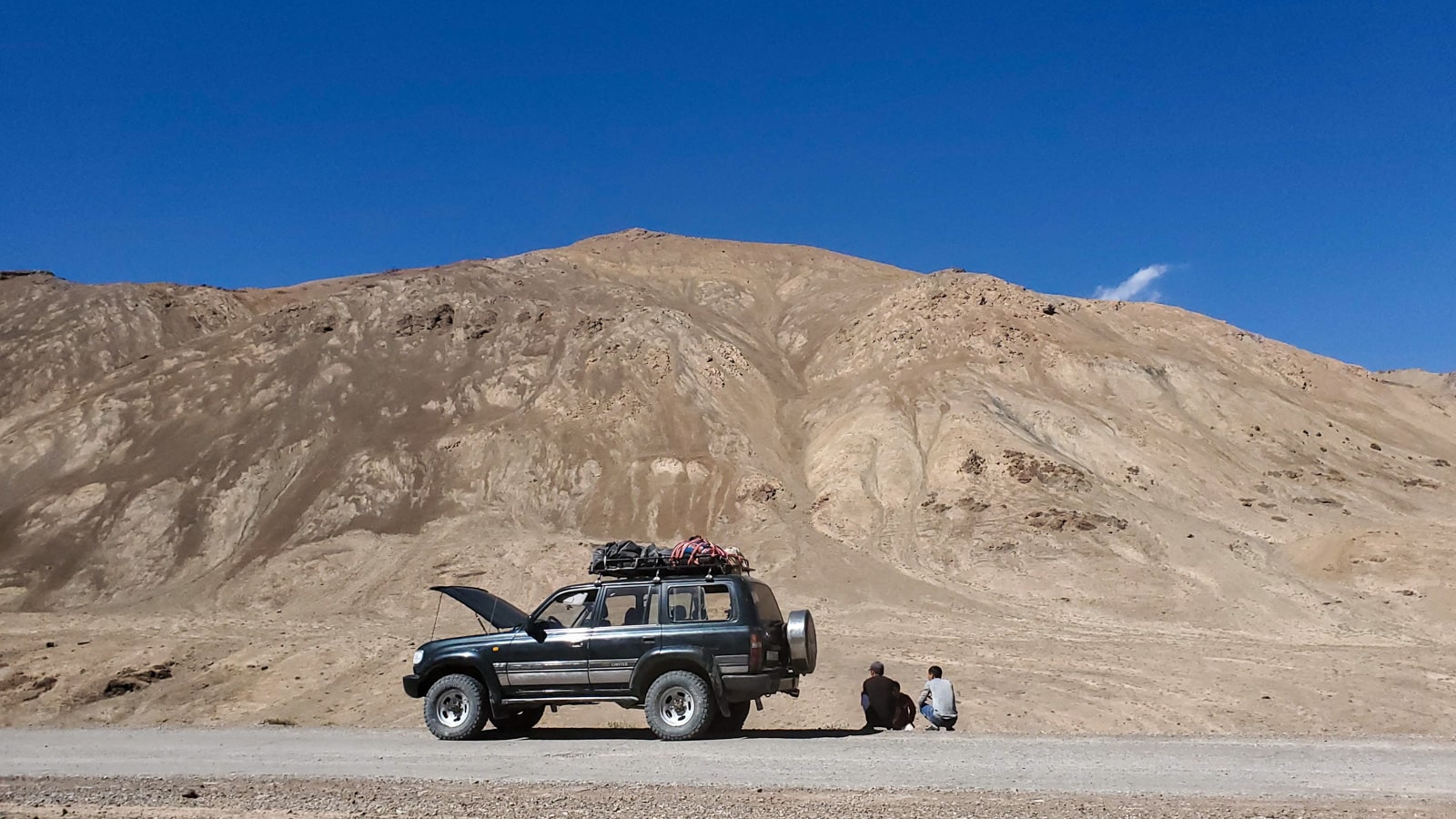
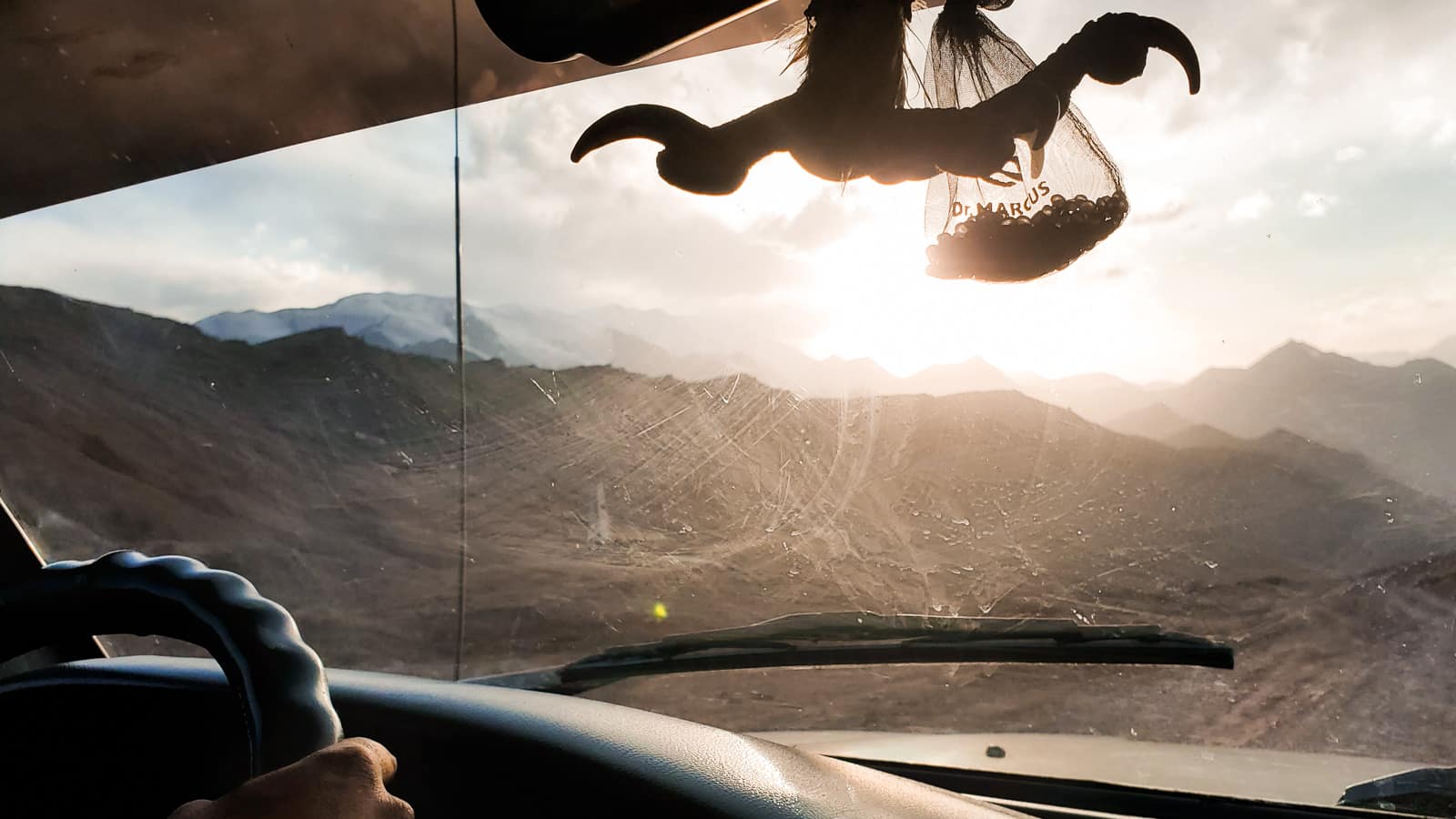
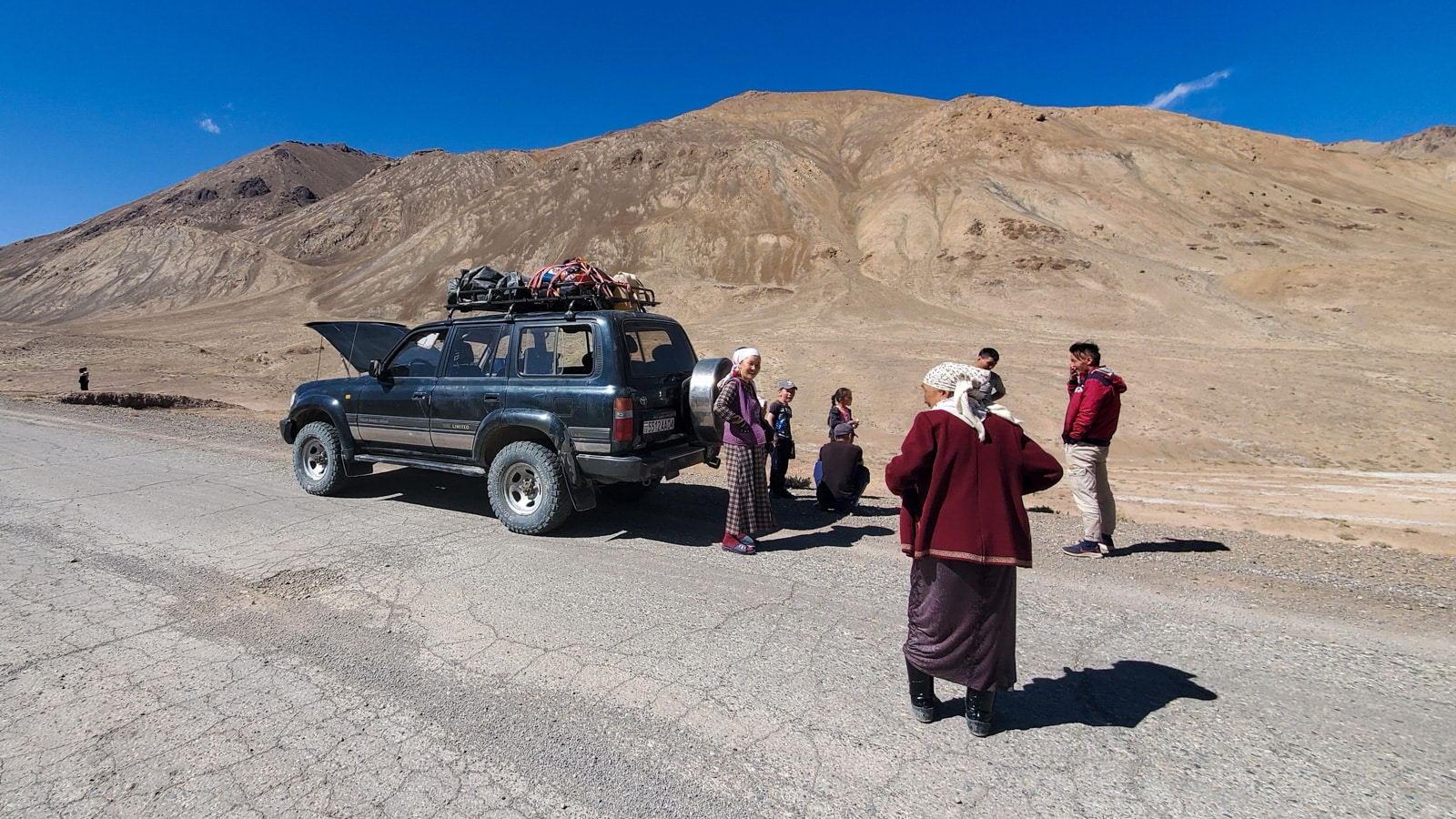
A slight miscalculation
To my dismay, there turned out to be not one but two 4,000+ meter passes en route from Murghab to Osh: 4,655m Ak Baital, and 4,280 Kyzlart on the Kyrgyzstan-Tajikistan border.
Oops.
To be fair, the route was definitively spectacular. Barren peaks swept into dusty valleys, cradling both salty ponds and the sapphire waters of sprawling Karakul Lake. A few lonely houses and guesthouses peppered Karakul’s shores, but until we crossed the border into Kyrgyzstan, the stark landscapes were otherwise devoid of life (unless you count the occasional cyclist struggling up the mountain… though they, too, seemed to be devoid of life).
The Pamir Highway is truly an adventurous traveler’s dream… but at that moment, my dream comprised sea level existence, cold apple juice, and a bed. I vowed to come back one day. If I survived.
A pale pink sunset blended into night as we queued at a tollbooth-like border post to be stamped into Kyrgyzstan. I have never appreciated my US passport privilege more than at that very crossing—visas on arrival are nothing short of divine salvation when you’re so discombobulated you can barely stand.
My relief was short-lived. I began eagerly checking the time as the 8-hour mark grew closer… then switched to obsessively checking our location on Maps.me as the mark came and went. Shouldn’t we have arrived by now? My increasingly panicked map analyses were periodically interrupted by the need to rub my surrogate grandmother’s back as she vomited violently into a plastic bag.
Around 11 PM—almost 10 hours after our departure—the driver pulled over at a café inside a modest white concrete building. Most passengers climbed out gleefully, stretching and yawning as they wandered inside. Three of us remained; judging by their faces, all of us put together would still yield a half-dead person.
After disappearing behind a shed to dry heave for a time—not nearly as therapeutic as I thought it would be—I returned to slump across the middle row of seats. I’d heard a couple of old French tourists discussing travel times while searching for the toilet. I ran their speculations by grandmother, weakly reclined in the front passenger seat. Neither of us were particularly masterful Russian speakers, but the message was clear:
Do you know how much more time?
Some time. Some hours.
From here?
Yes. We come to Osh very late.
So much for 8 hours.
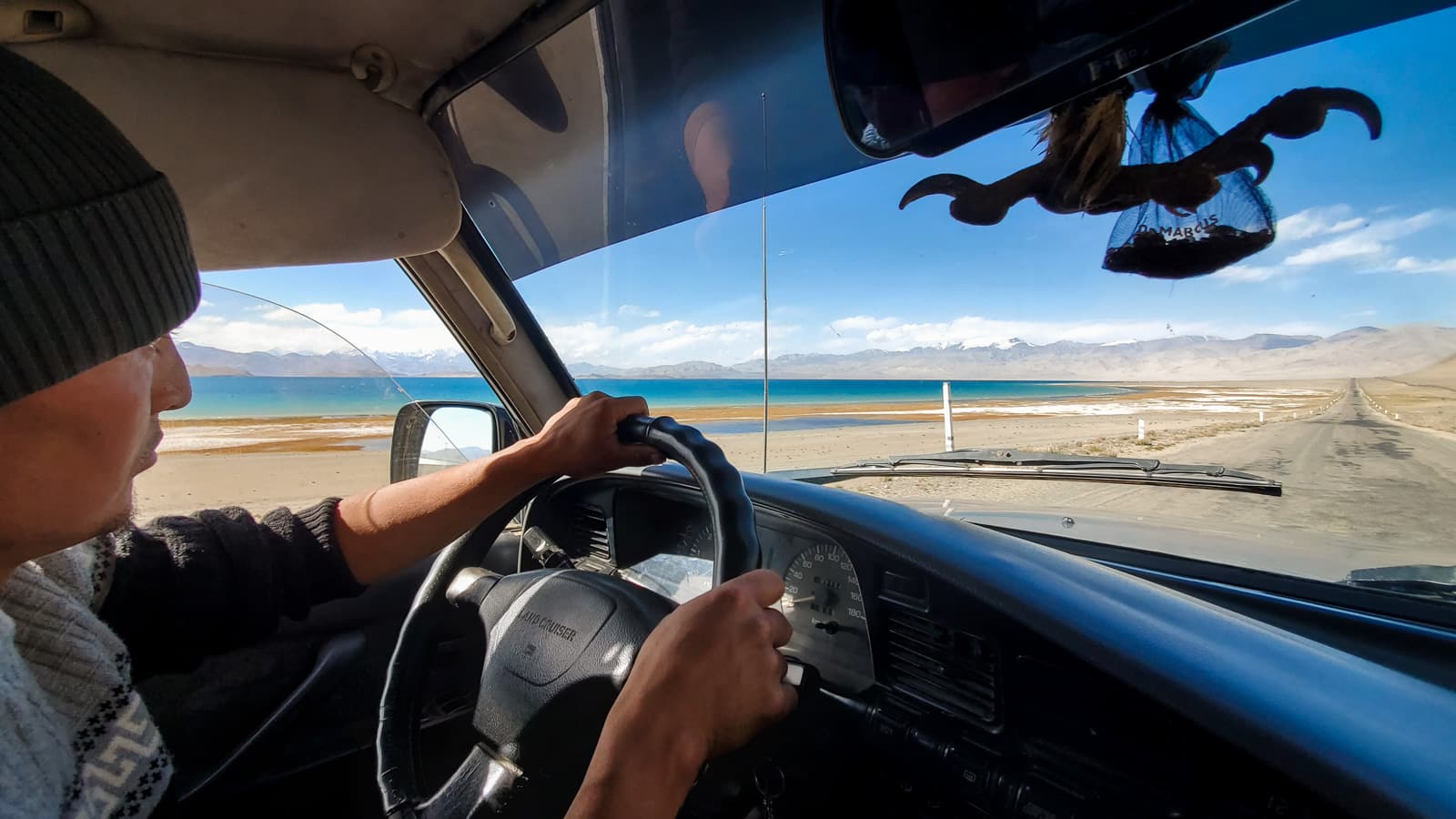
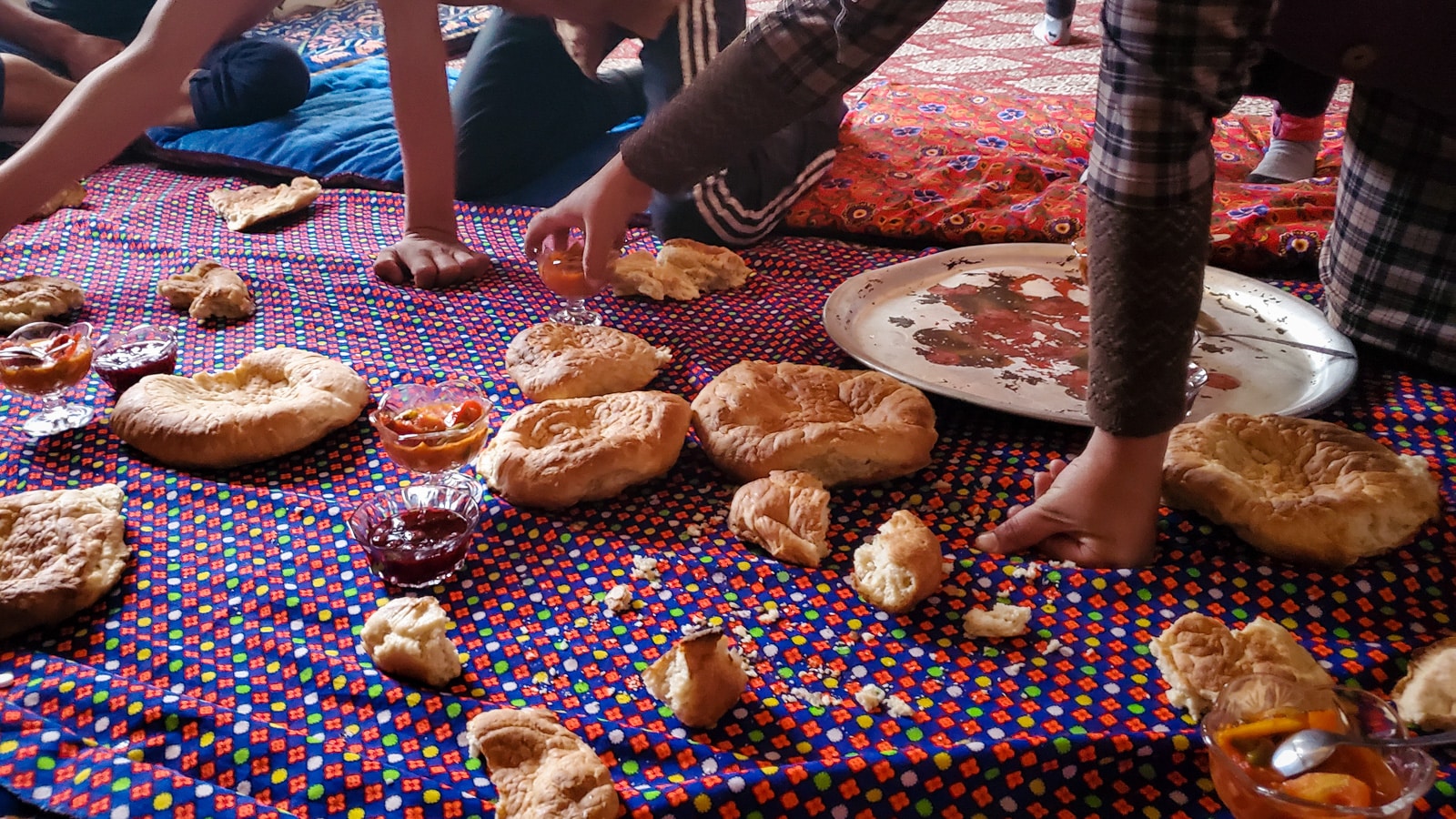
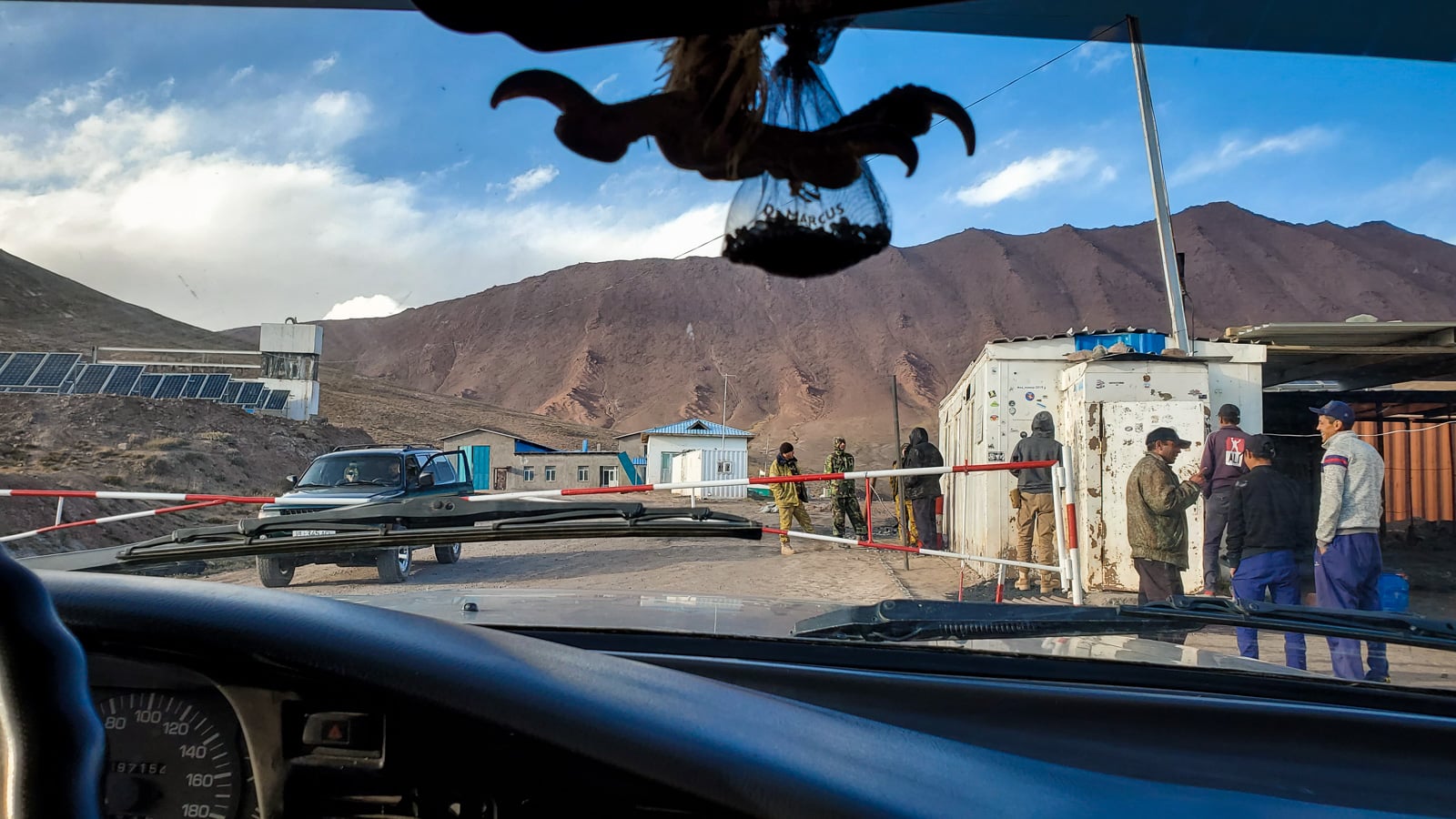
Late night breakdowns
It was nearly 2 AM before we approached Osh, Kyrgyzstan. More than 12 hours since we left Murghab in Tajikistan.
Despite being completely and most utterly exhausted, there was a glimmer of hope. Even though I was still weak, I could feel the low altitude. Finally, I could breathe.
The city was so close. My belongings were on my lap. In preparation, I shared copious goodbyes and thanks and compliments in crude Russian with my savior/grandmother. I had an address for a guesthouse ready on my phone; taxi drivers in Tajikistan usually picked up and dropped off passengers right where they needed to go.
… or so I thought. Note to self: no more thoughts.
The jeep driver pulled over on the side of a highway (barely) on the outskirts of Osh. People began tumbling out into the darkness. A handful of taxi drivers circled the jeep.
I was so tired I could barely comprehend what was going on, and looked desperately at the driver.
You are not driving more? No drop off?
A surly look was his first response—deservedly so, after 12 hours of jeep driving—followed by a curt bark: No. We get out here.
I began to panic. We were still two kilometers away from the nearest guesthouse, and even more from my guesthouse in the city center. It was pitch black; there was no one on the streets. I was so weak I could hardly lift my backpacks, let alone walk anywhere with them.
The biggest problem: in my sudden rush to leave Tajikistan, I’d forgotten to get Kyrgyz money. I was broke.
Suppressing a mixture of embarrassment and self-loathing at sinking to the level of pathetic, begging foreigner, I looked pleadingly at my fellow passengers.
Someone has Kyrgyz som for Tajik somoni? I do not have money. Please. I forgot. Someone can exchange? For dollars, maybe?
Some looked concerned, others less so. None had spare change.
I was so distraught I didn’t even notice my camera bag and backpack being thrown down from atop the jeep (luckily, everything survived). As passengers began to disperse, I looked down hopelessly at my bags.
Stupid, stupid traveler. You think you’re so experienced, yet here you are. How could you make such a rookie mistake?
It seemed I had no other option; I had to pick up all 38 kg of bags and walk.
The simple motion of shouldering my backpacks, heavy at the best of times, nearly brought me to the ground. My main backpack alone was too much weight for my weakened body; after taking a few experimental steps it fell to the ground. After holding it together for days, something inside me broke. In the darkness, I began to cry.
Alexandra?
The gentle voice floated through the sound of my wet snuffles. I looked up through teary eyes to see the grandmother from the jeep gesturing at me through an open taxi window.
Come, come. She pointed to the door.
Hastily wiping my eyes, I began dragging my bags towards the taxi. The young driver helped me load them in, and we were soon on our way into Osh.
Negotiations, empty-handed
Between babbling gratitude, platitudes, and responses to typical chit chat about where I was from, I looked up another guesthouse along our route, and told the driver where I needed to go. Monueva and Masalieva streets. The intersection. Please. Grandmother waved her hand dismissively.
As we approached the intersection, the taxi suddenly veered off to the right and sped off down another road.
I began to panic again. Where are we going? Please, I want to go there. Please. Please can we go back? One minute? Tears began to flow, despite my best efforts to stop them.
Grandmother smiled at me from the front seat, pointing at apartment buildings up ahead. Alexandra. You come to my daughter’s home. You stay with us.
Normally, I love spontaneous invitations. But moved as I was by her hospitality, I was in desperate need of a bed to die in and Wi-Fi to frantically figure out how to get to my Pakistan tour without having to pay a small fortune. Also, I was on the verge of a full-on meltdown—hysterical tears do not a good guest make.
Thank you, thank you, but please, I cannot, I need to be in guesthouse for my work. Please.
She finally relented. The taxi driver’s eyes, watching the blubbering, clueless foreign girl in the back seat in the mirror, seemed to soften.
When we reached grandmother’s apartment, he told me in English to stay in the taxi while he helped her inside. I got out anyway to say my adieus to my savior, though by then she seemed slightly put off by my rejection… or, more likely, she was tired after hours of driving and projectile vomiting. As they hauled her bags up the steps, I fell back into my seat and closed my eyes.
“So. You have no money.” The taxi driver had returned.
“Yes, but I have Tajik money. I have dollars. Just no Kyrgyz som. I’ve had a very bad day. I’m sorry. We can go to an ATM or…” My desperation was palpable.
The young taxi driver smiled kindly. “I understand. How much Tajik money do you have?”
I pulled out a crumpled wad of notes from the depths of a bag. Around 170 somoni, almost US$15—five times that of what the taxi should cost. “You can have everything. Please, I just need a ride.”
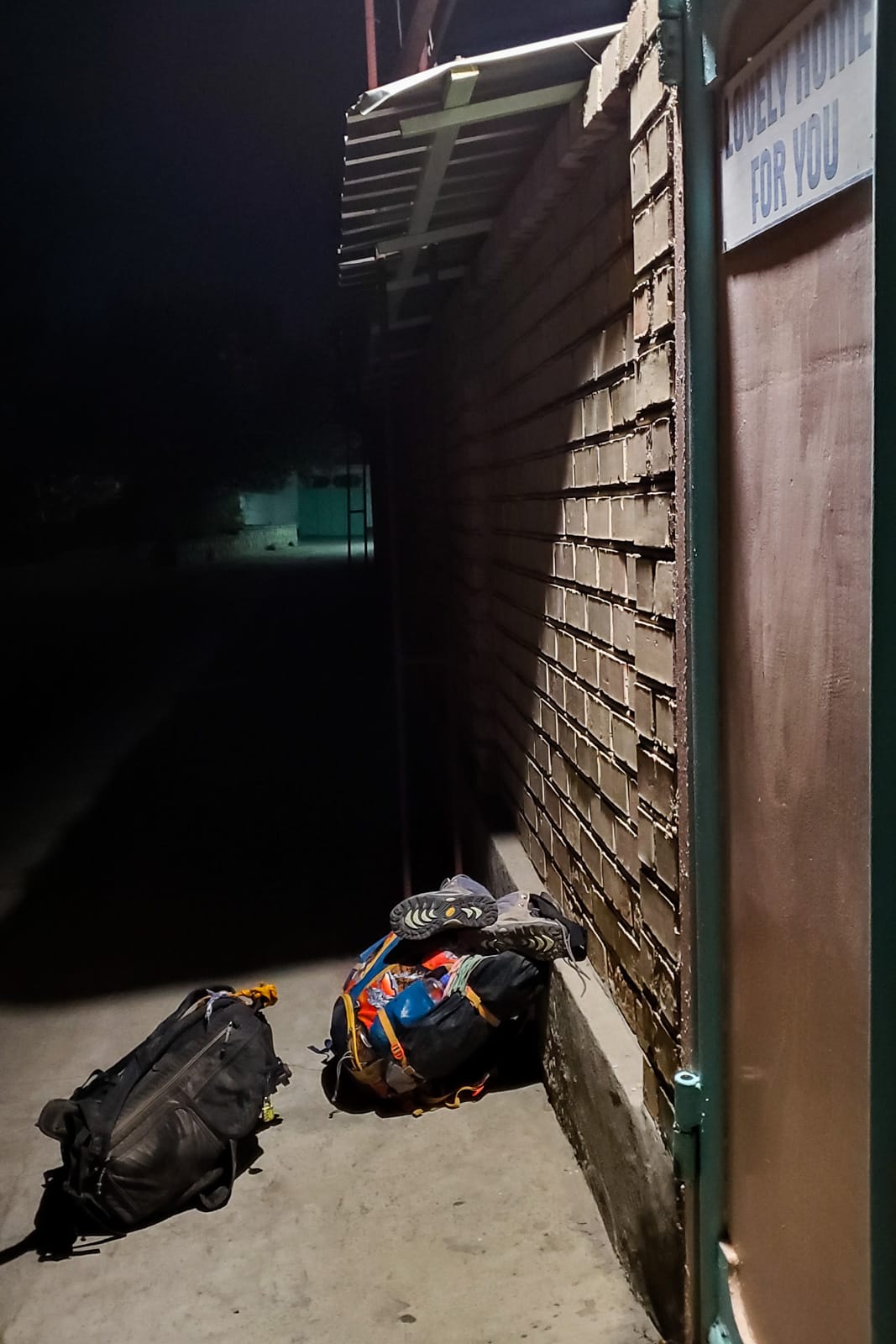
End credits
Travelers are often celebrated for their bravery. People gasp in awe as we relay stories of brushes with death and times of peril, marvel at how our brilliance or resilience helps us to survive.
What people don’t realize is that, more often than not, it’s not the traveler that deserves credit for surviving; it’s the kind strangers who help travelers back onto their feet.
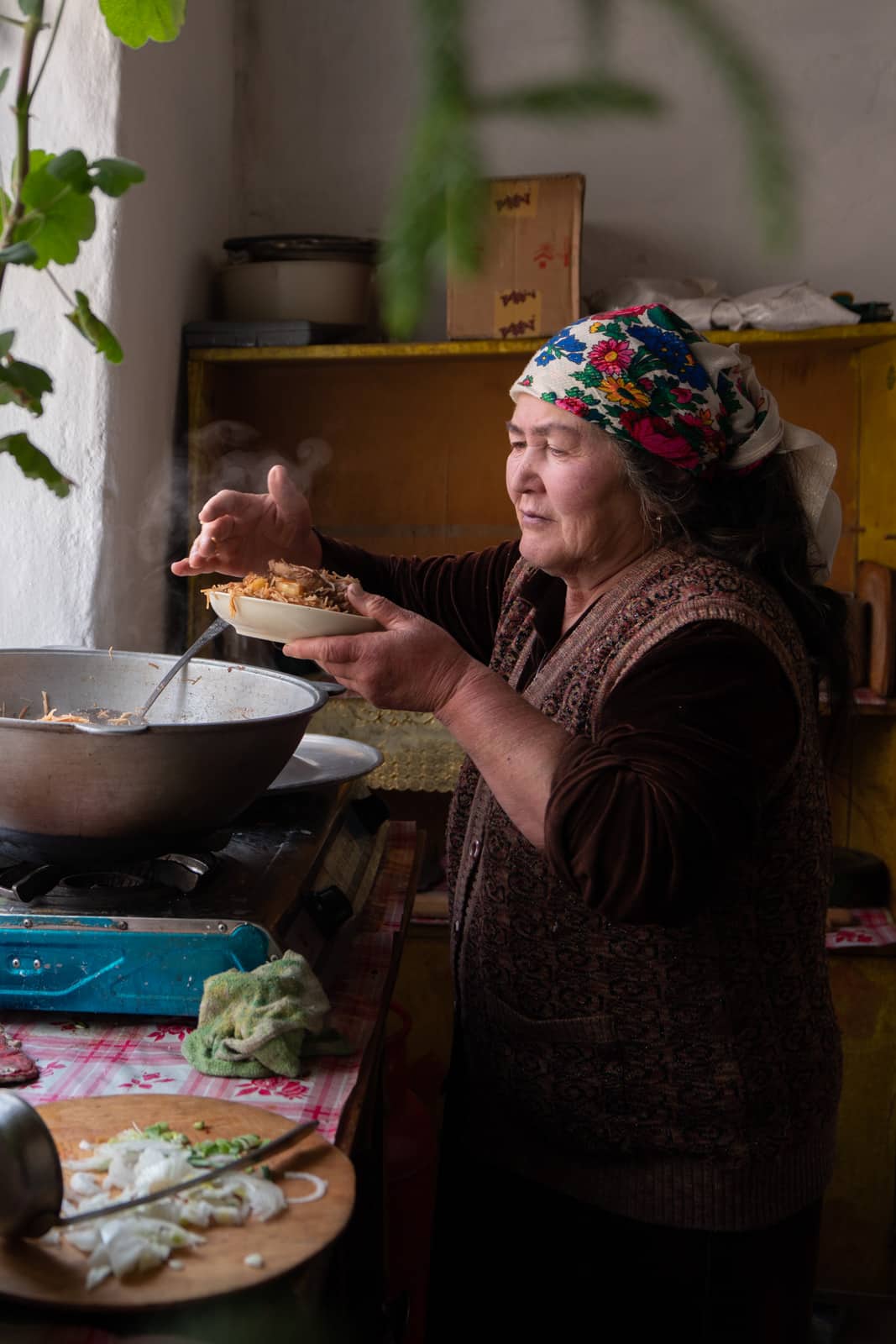
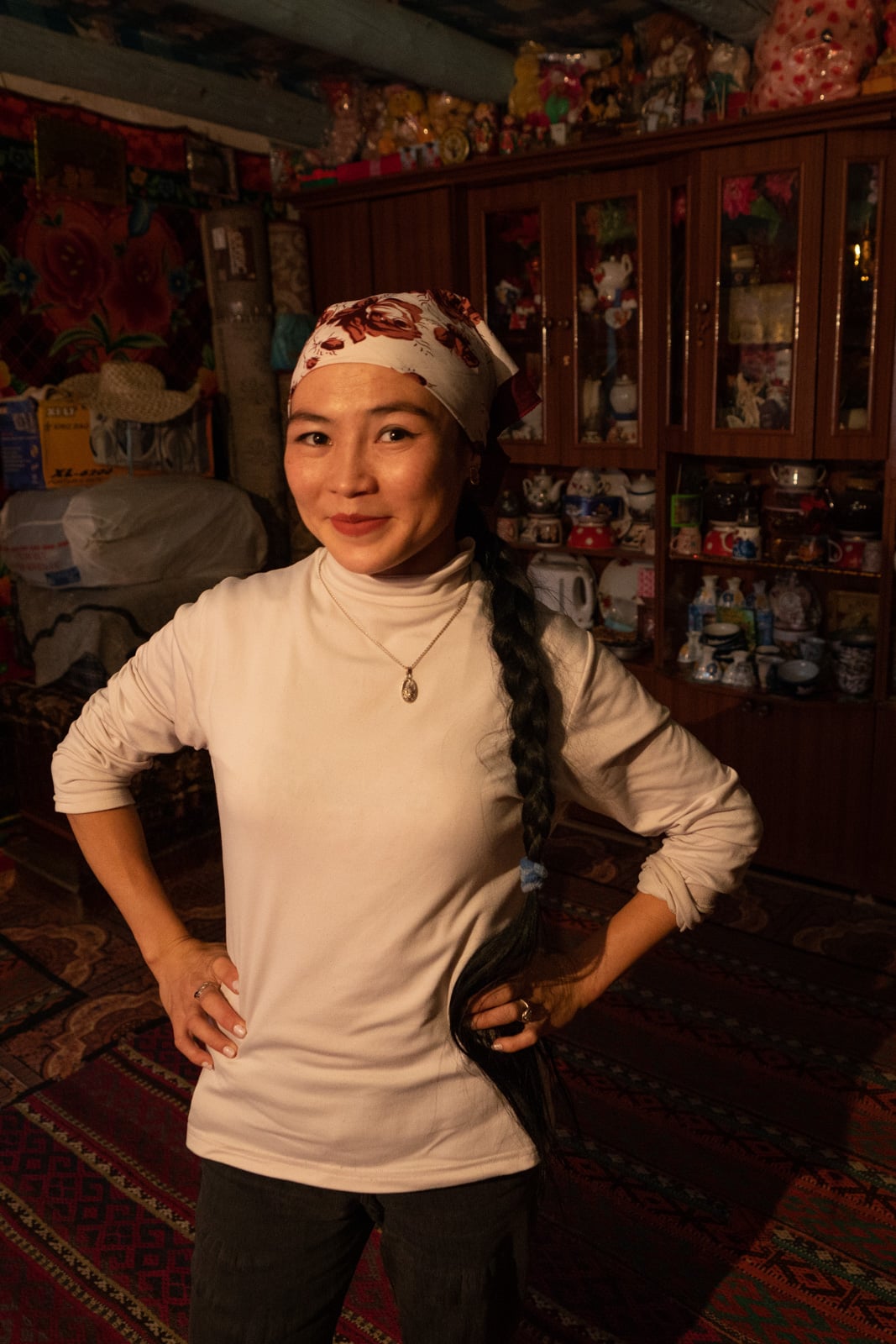
If it weren’t for my homestay host, Appa, nursing me and urging me to go to the hospital, I very well might have died or gone into a coma in Shaimak. Making it easier to forgive her for overdosing me with mutton.
If my hospital roommate, Aika, hadn’t urged the nurses to be more attentive, helped me get medications, or put onto a jeep from Tajikistan to Kyrgyzstan, who knows how long I would’ve rotted away in Murghab.
If my surrogate grandmother (whose name I still can’t recall) wasn’t holding my hand, I would’ve lost my sh*t in the jeep. If the Osh taxi driver hadn’t given me a ride, I would’ve collapsed, alone, on a dark city street at 2 in the morning.
Because of the kindness of these people I barely knew, I walked through the gate of the “Lovely home for you” guesthouse at 3 AM, led by another supportive stranger: the sleepy-eyed owner who gave me a triple room for a single price after hearing my dramatic tale.
Thanks to the kind souls, instead of dying in the middle of nowhere, I sat on a bed with a roof over my head, bawling in relief and horror at everything that just happened. For the first time in my travels, I was a sopping, sobbing, terrified mess… but because of the people I met on the road, I was alive.
Спасибо болшое. Мы встретимся снова.
P.S. Yes, I did make it to Pakistan in time for the tour.
Safety note on altitude sickness: This experience could have been fatal or caused lasting brain damage. Altitude sickness (AMS), especially advanced forms like HACE, are a serious risk when traveling the 3,000m+ Pamir Highway. You must be careful when traveling at high altitudes: avoid sleeping more than 1,000m higher than the previous night; stay hydrated and do not overexert yourself; pack AMS medications such as Diamox (if you’re not allergic to sulfa) and dexamethasone in the event of HACE. Most importantly, educate yourself on symptoms of different forms altitude sickness and treatment options should any occur.
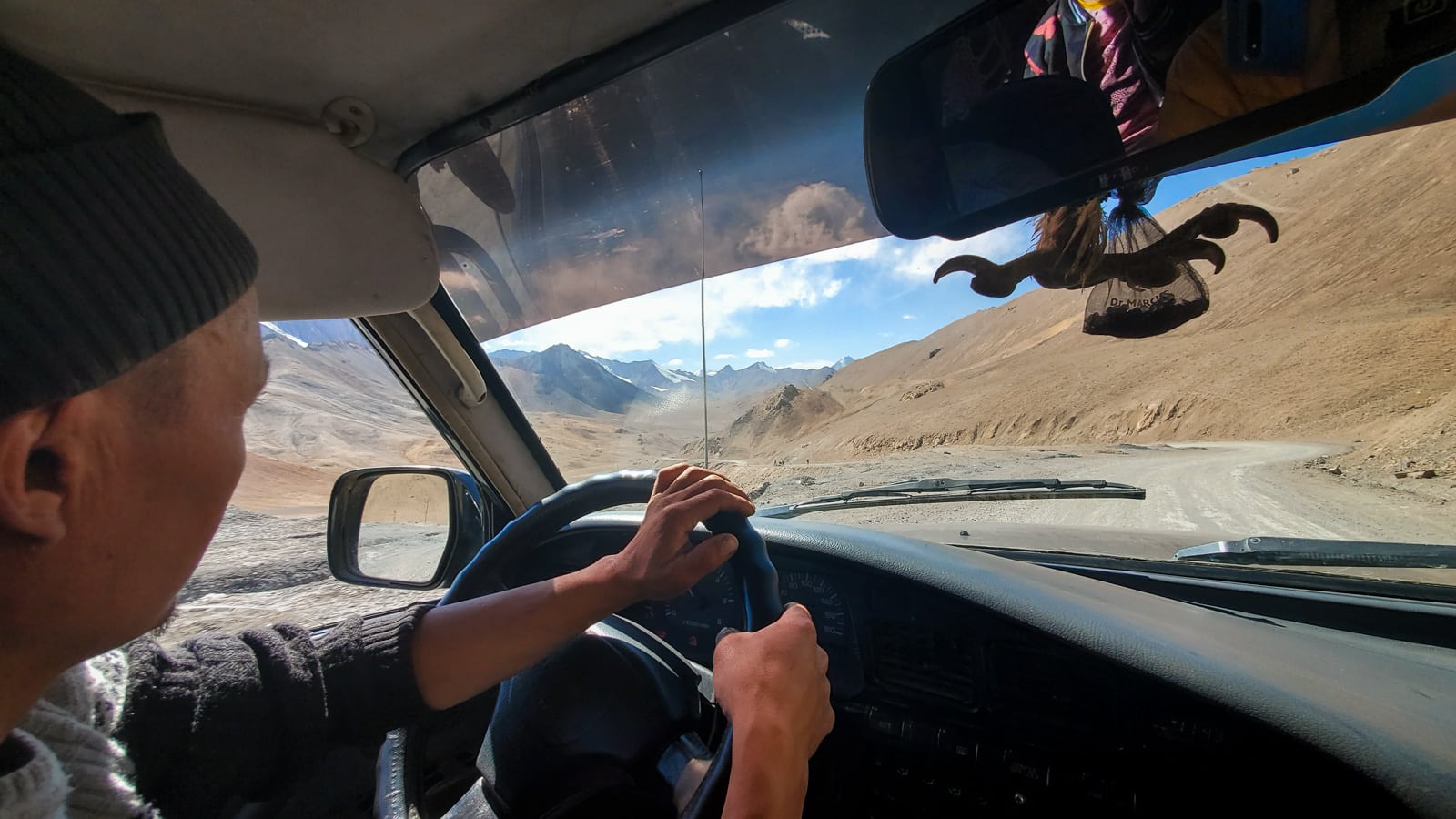


What an ending to a terrifying ordeal! There are definite disadvantages to being a female traveler but there are also advantages as kindly women see you as a sister, a daughter, a granddaughter, and they will take you under their wing. I’ve been so grateful to so many local women on the road and I’m grateful that they were there for you too.
This whole 3-part story was incredible. I admire your ability to tell stories (for more than only one reason), absolutely brilliant. You gained a new loyal reader 🙂
PS: I wrote you a longer-than-intended email (I’m Andy the bicycle guy).
I teared up after reading the whole story. What an ordeal! Am grateful to all the kind and wonderful people who helped you.
Fantastic story – I read all three parts in one go without a break. Your blog is an inspiration
Cheers James! And well done for making through all of them in one go, ha!
Wow, thank you for sharing your story! I was perusing your blog when I saw the first part, and I couldn’t stop reading until the end. You write so well, and you tell your story in such a way that I felt I was reading a book I couldn’t put down. Hearing stories of the kindness of strangers always makes me so happy. So glad you were taken care of!
Ой, what a story! I’m so glad you’re well.
Great writing and incredible story! You should be writing books, if you aren’t already! I really want to travel the Pamir highway and Tajikistan, but I feel like the elevation is just a bit much for me. This story confirms that, I don’t know if I’d make it. Maybe one day. Cheers!
Thank you for sharing your story. I have just read about a fellow Malaysian whose husband passed away when he descended Everest due to HACE. I was wondering, what is HACE like and I m very concerned if it happens, how do i know. And i saw your story (i have started following your blog this year) and I truly grateful for you sharing this story. I am glad you survived it and able to share it to us. And yes you are right, the local people play a big roles in our journey, and i am glad you met many of them.
Wow!! I poured tears and read all three parts just now . I Love your stories and blog here . You’re an inspiration .)) I hope to get to this part of the world one day . It’s so true . The kindness of strangers and the people we meet on our way is everything . What a life! XO Tera